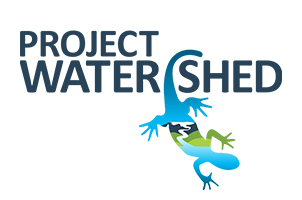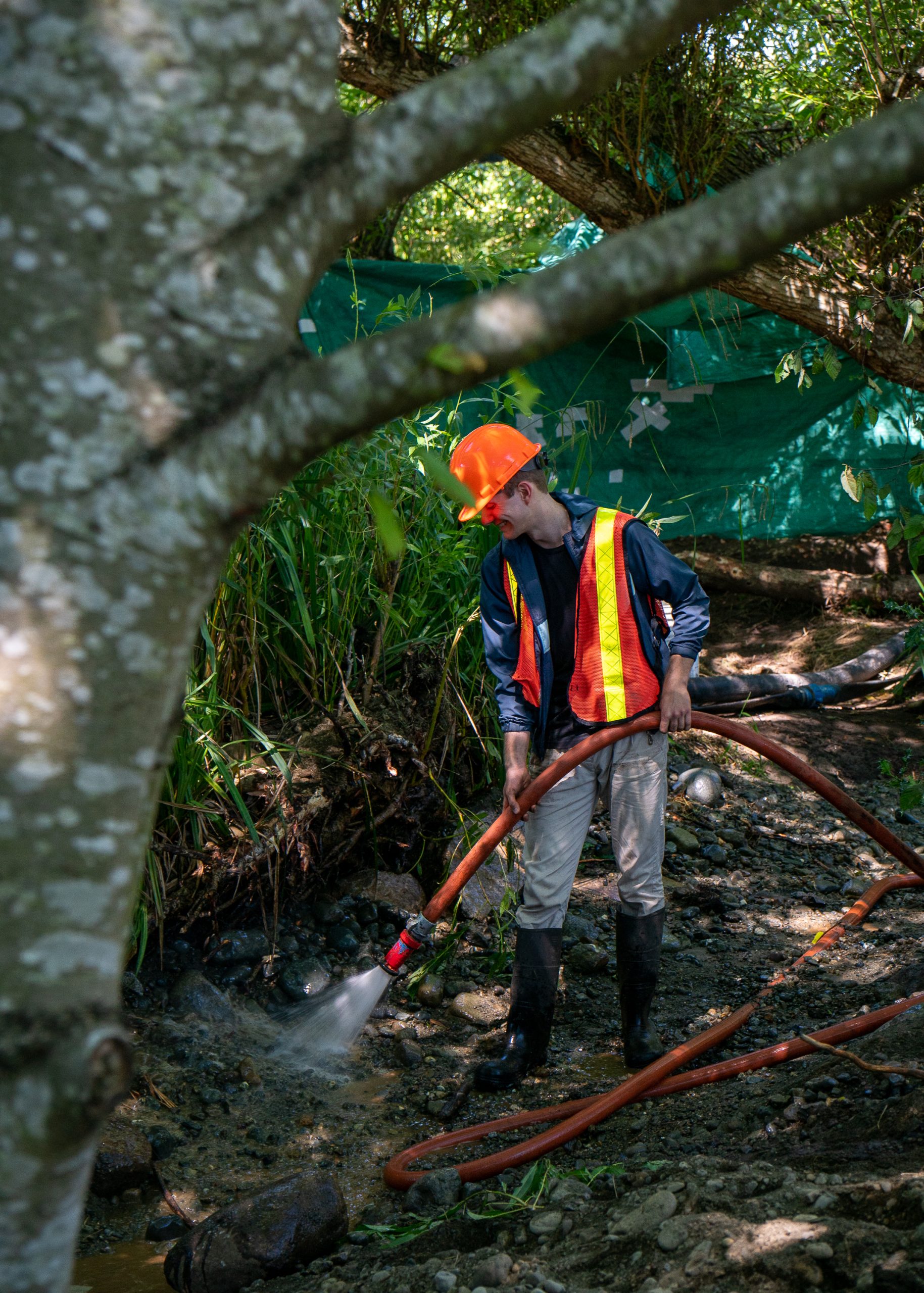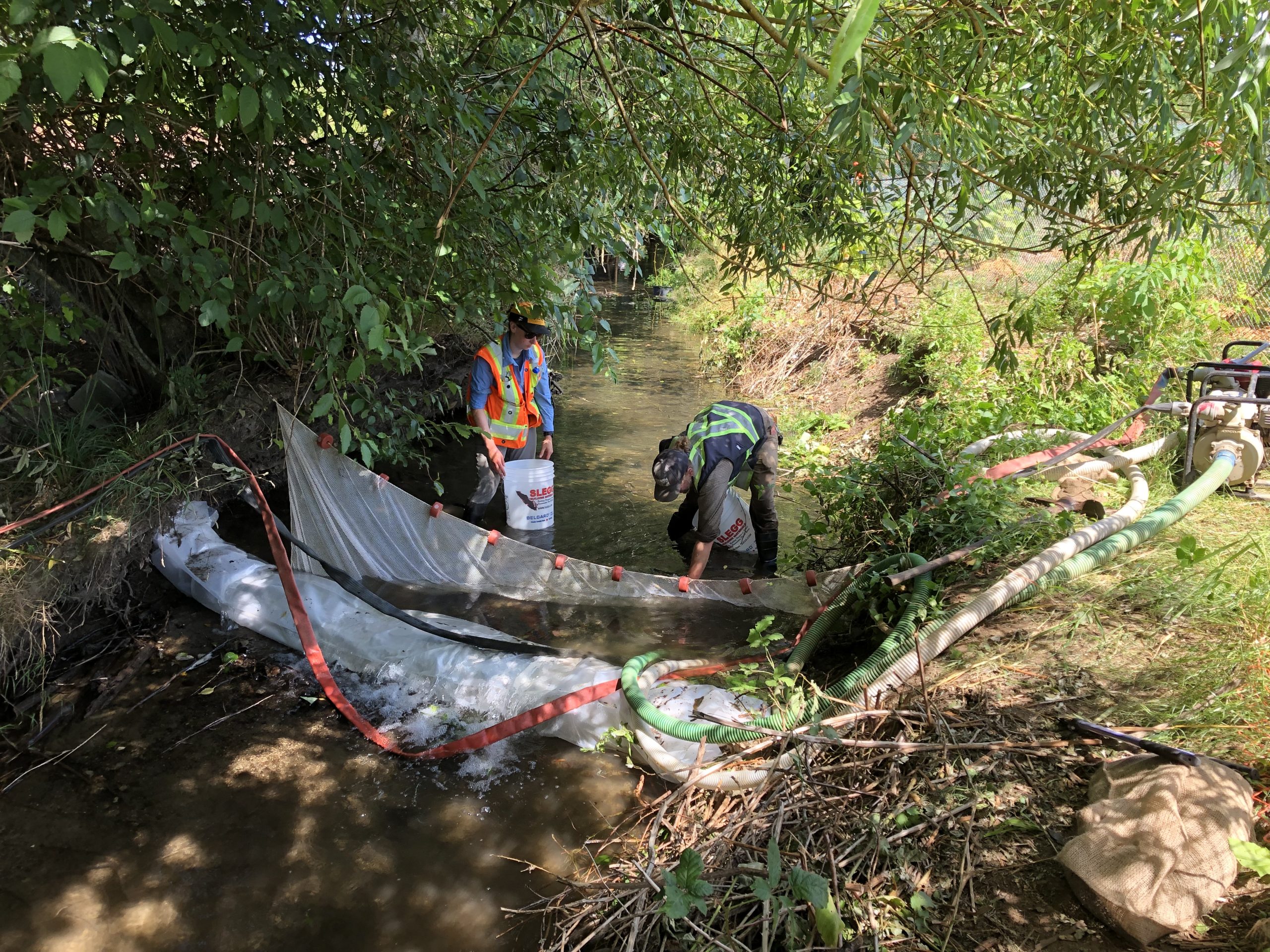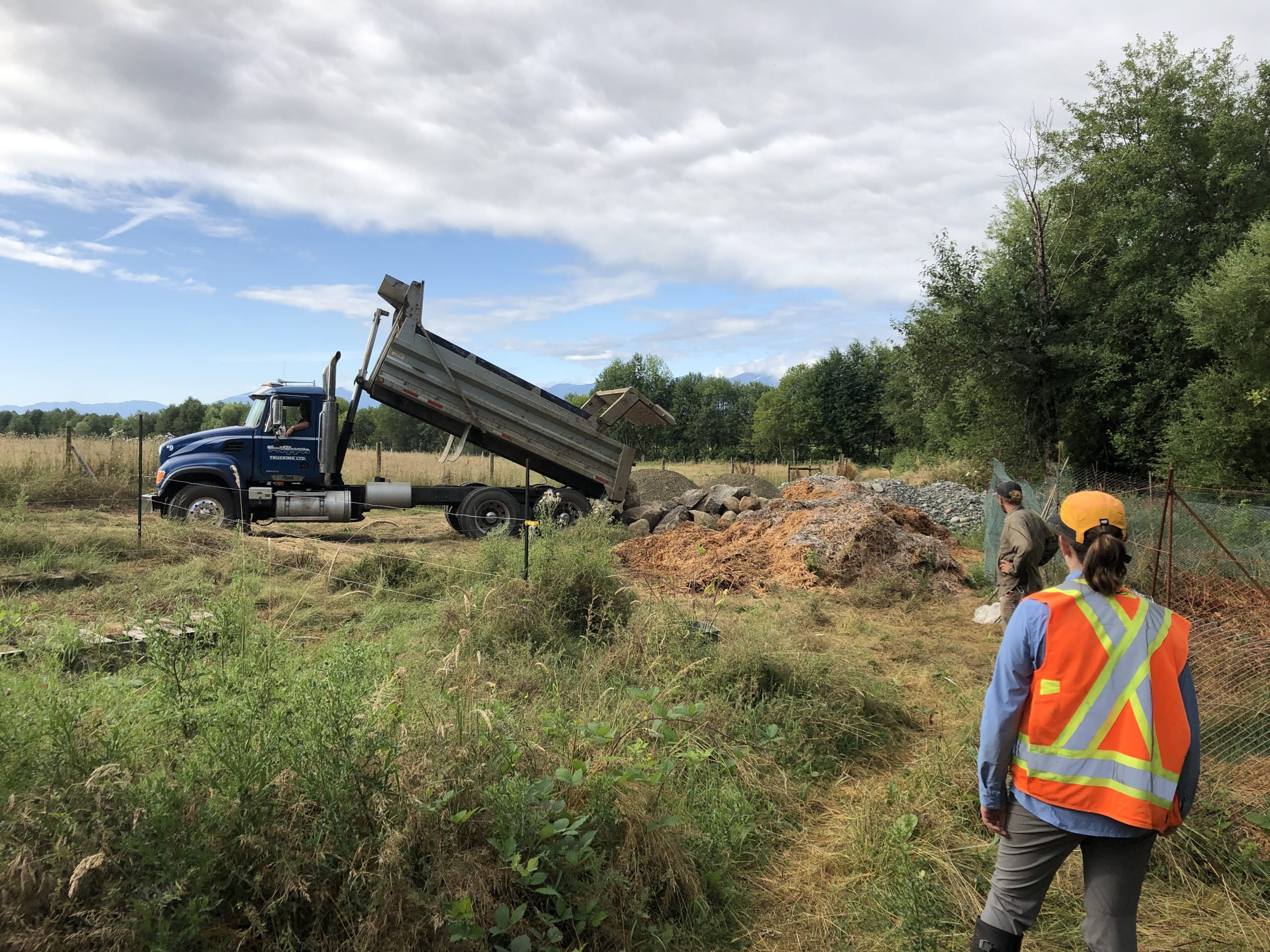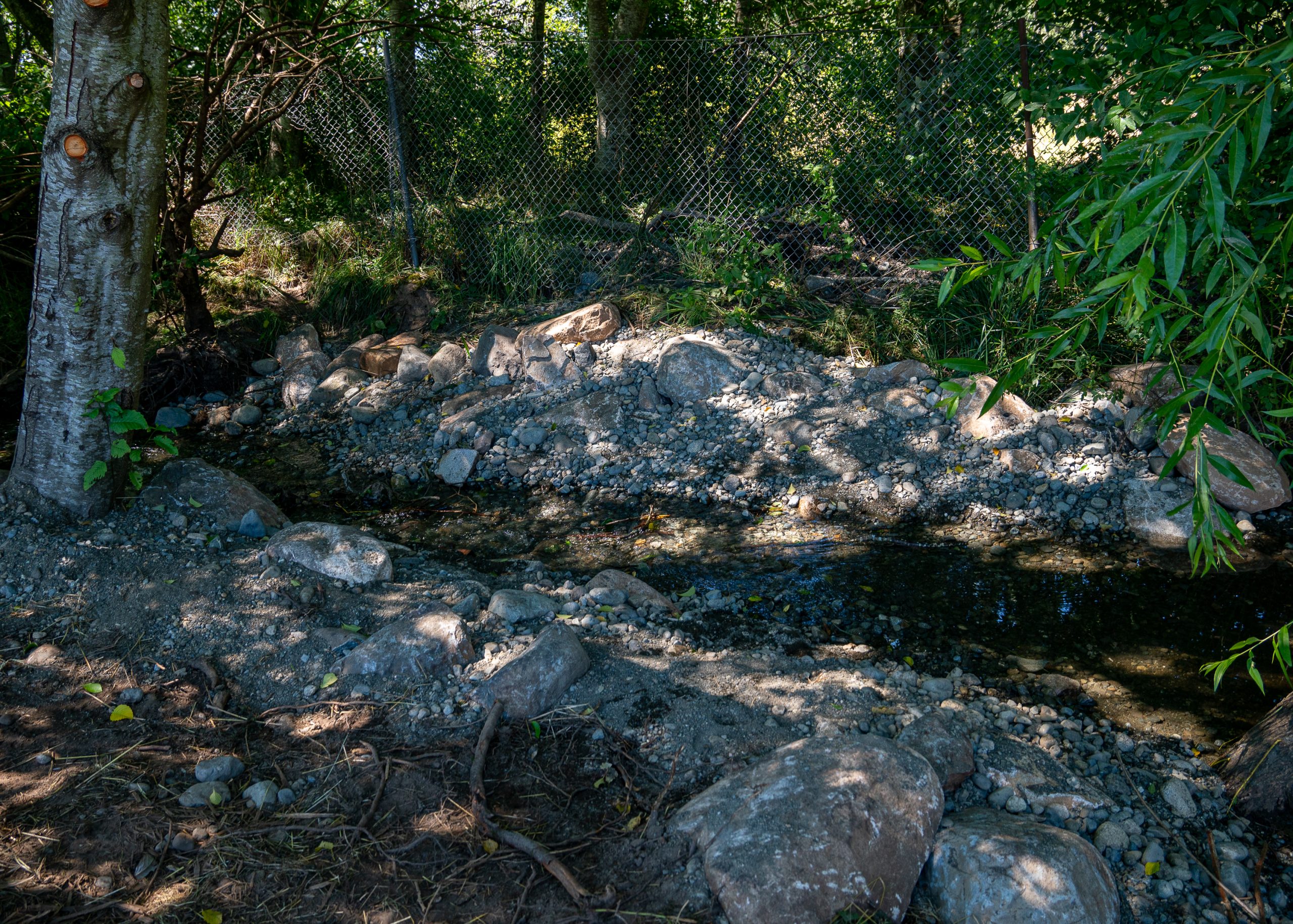Technician Tuesday Report – In-Stream Construction at Glen Urquhart – August 9
Cain Tipton spraying the creek bed with water to remove fine materials ~ By L. Stewart
De-Watering a section of Glen Urquhart ~ By C. Tipton
Materials drop off for Glen Urquhart construction ~ By C. Tipton
New riffle construction at Glen Urquhart ~ By L. Stewart
Before in-stream work can begin, the fish must be safely removed from the work area and the water drained. To do this, fish traps were set overnight and checked the morning of construction and any fish that were not captured were caught in a net by hand. The fish were moved to a safe area of the creek downstream where they would not be affected by work activities.
Once the creek was clear, the water had to be drained. Cain and Renée laboriously prepared sand bags that would be used in conjunction with a plastic poly material to create a dam. The water contained within the dam was then drained using a system of hoses and pumps. Because the team has had to complete this process several times, they have learned how to dam the creek very effectively; preparation is key to prevent leaking barriers!
Water quality was continuously monitored to ensure areas of the creek that were disconnected from de-watering contained safe levels of dissolved oxygen for the species living there. If oxygen dipped below safe thresholds, water was pumped in to introduce more oxygen.
Did you know fish and other aquatic animals breathe oxygen too? Oxygen gas that is dissolved in water is absorbed directly from the water into their bloodstream through their gills.
Taking a break from working in the wet, Cain and Renée planted fall rye (Secale cereale) in areas where an excavator had removed large amounts of blackberry the previous week. By planting fall rye along the bank, the plants will help to stabilize the area when their roots begin to grow deep and spread through the soil. This will help hold the bank together and prevent erosion in the future. These seeds were kindly donated from Lentelus Farms!
Finishing up for the week included removing any debris from the creek such as twigs and leaves. Cain also sprayed the new riffles with a fire hose to wedge the fine soil particles in between the rocks and boulders, holding them in position (photo 2). This will ensure the riffles stay in place when the creek barriers are removed and water runs through the stream again.
Related Posts
Mallard Creek Restoration Update for 2024
Restoration work in Mallard Creek will continue this year, including invasive removal, restoring connectivity, and trial planting of a new riparian species. Volunteer events starting in September 2024.
Volunteer at Kus-kus-sum Chamber of Commerce Event
We are showing Kus-kus-sum off to businesses in the Valley through a Chamber Business to Business event. We are looking for a few volunteers to assist with this event.
Coastal Plant Monitoring
Get involved with our new vegetation community science monitoring program!
Spring Field Trips
Throughout May and June Project Watershed will be taking elementary school classes out on field trips to learn about estuary and coastal ecology and to assist with planting and plant maintenance.
Working Together to Identify Forage Fish Spawning Beaches
This year marks the 5th year of a partnership between Comox Valley Project Watershed Society and North Island College on a long-term study to examine intertidal spawning habitats of forage fish in the northern Salish Sea.
Glen Urquhart Update – Spring 2024
Latest news from Glen Urquhart restoration progress for spring 2024.

